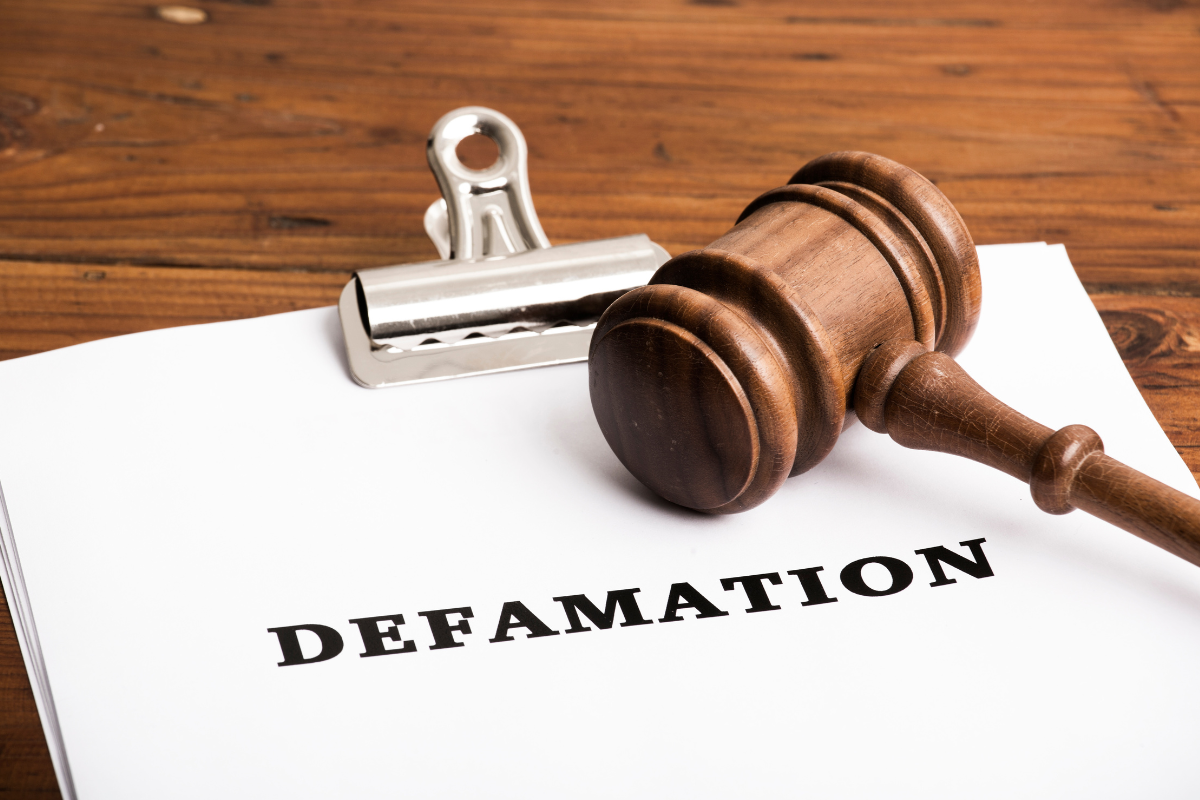Defamation is a serious issue that can harm an individual's or entity's reputation. It involves making false statements that injure someone's reputation. Defamation laws are designed to protect individuals and organizations from unwarranted damage to their reputations while balancing the right to freedom of speech. This article explores the concept of defamation, its types, and the legal principles that govern it.
What is Defamation?
Defamation is a false statement presented as a fact that causes injury or damage to the character of the person or entity it is about. To be considered defamatory, a statement must be:
1. False: Truthful statements, even if harmful, are not considered defamatory.
2. Published: The statement must be made to at least one other person besides the subject.
3. Injurious: The statement must cause harm to the subject's reputation.
4. Unprivileged: Certain statements made in specific contexts, such as in courtrooms or legislative bodies, are privileged and protected from defamation claims.
Defamation can be categorized into two types: libel and slander.
Libel vs. Slander
1. Libel: Libel refers to defamatory statements made in a fixed medium, typically writing but also including images, signs, or electronic broadcasts. Because libel involves lasting records, it is often considered more harmful than slander.
2. Slander: Slander involves defamatory statements made in a transitory form, such as spoken words or gestures. Slander is generally considered less harmful than libel, as it does not have a permanent presence.
Elements of a Defamation Claim
To succeed in a defamation lawsuit, the plaintiff must prove several elements:
1. Statement: There must be a statement that is alleged to be defamatory.
2. Publication: The statement must be communicated to someone other than the person it's about.
3. Falsity: The statement must be false.
4. Injury: The statement must cause injury to the subject's reputation.
5. Fault: The plaintiff must show that the defendant acted negligently or with actual malice.
Defenses to Defamation
There are several defenses that can be used in defamation cases:
1. Truth: If the statement is true, it is a complete defense against defamation.
2. Privilege: Some statements are protected by absolute or qualified privilege. Absolute privilege applies in legislative and judicial contexts, while qualified privilege may apply in situations where the statement was made in good faith.
3. Opinion: Statements that are clearly opinions and not assertions of fact are not considered defamatory.
4. Consent: If the plaintiff consented to the publication of the statement, they cannot claim defamation.
Defamation Laws Across Different Jurisdictions
Defamation laws vary widely across different countries and jurisdictions. Here are a few examples:
1. United States: The U.S. defamation laws are influenced by the First Amendment, which protects freedom of speech. Public figures must prove actual malice, meaning the statement was made with knowledge of its falsity or with reckless disregard for the truth.
2. United Kingdom: The UK has stricter defamation laws compared to the U.S. The Defamation Act 2013 requires claimants to show that the statement caused or is likely to cause serious harm to their reputation.
3. Australia: Australian defamation law is a combination of federal and state laws. The Defamation Act 2005 standardizes defamation laws across states, emphasizing the harm caused to the plaintiff.
4. Canada: In Canada, defamation law is primarily governed by common law principles, with some variations across provinces. Defamation in Canada encompasses both libel (written defamation) and slander (spoken defamation). To succeed in a defamation lawsuit, a plaintiff must prove that a defamatory statement was made, that it referred to the plaintiff, and that it was published to a third party. Canadian law balances the protection of reputation with the right to freedom of expression, recognizing defenses such as truth (justification), fair comment, privilege, and responsible communication on matters of public interest. The Supreme Court of Canada has reinforced that statements made in good faith on matters of public concern, even if ultimately false, can be protected if they meet standards of responsible journalism. This approach aims to foster open dialogue on important issues while safeguarding individuals against unwarranted reputational harm.
5. India: In India, defamation is both a civil and criminal offense under the Indian Penal Code. The truth is a defense if it is made for the public good.
The Impact of Digital Media on Defamation
The rise of the internet and social media has significantly impacted defamation laws. Online platforms allow statements to be disseminated rapidly and widely, increasing the potential for reputational damage. Courts and lawmakers are continually adapting existing laws to address the unique challenges posed by digital media.
Conclusion
Defamation laws play a crucial role in protecting individuals and entities from unwarranted reputational harm while balancing the right to freedom of expression. Understanding the intricacies of these laws is essential in navigating the legal landscape of defamation. As communication continues to evolve, so too will the legal frameworks designed to address the complexities of defamatory statements.

